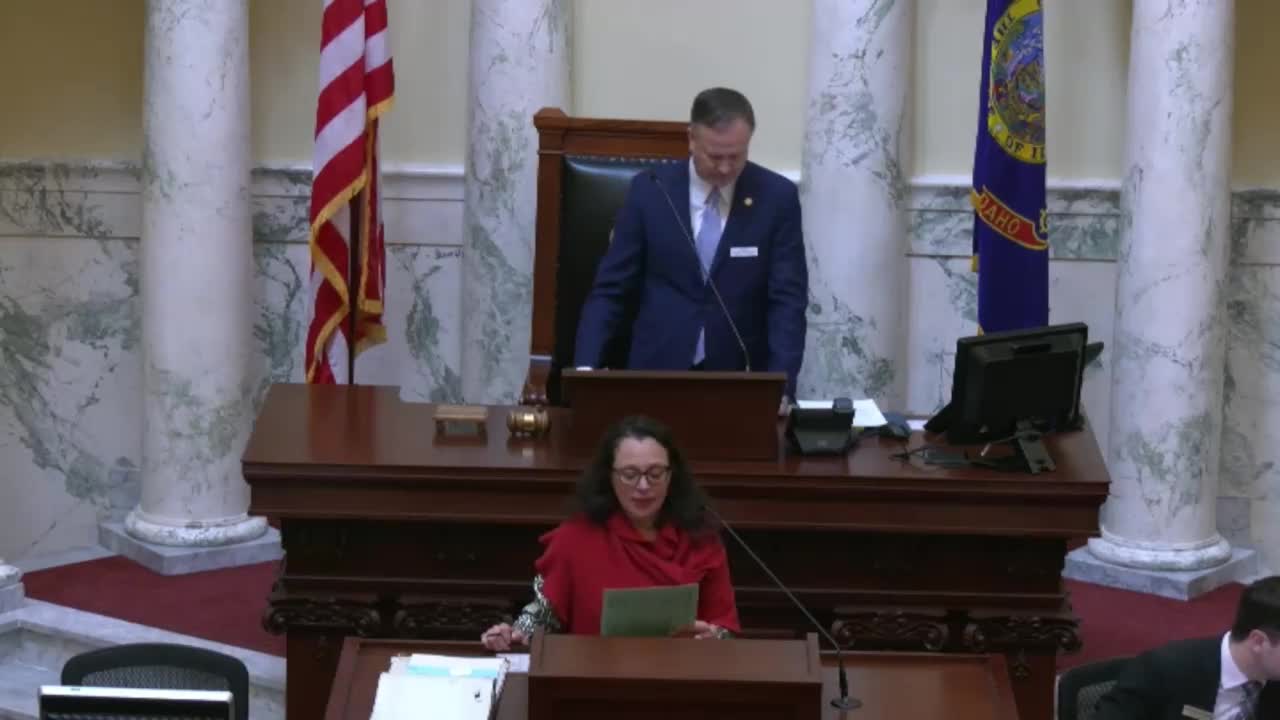Idaho Senate adopts resolution rejecting 22% legislative pay increase set by citizens committee
Get AI-powered insights, summaries, and transcripts
Subscribe
Summary
The Idaho Senate on Jan. 17, 2025 adopted Senate Concurrent Resolution 101 to reject rates of compensation set by the Citizens Committee on Legislative Compensation, after roughly 19 minutes of debate. The resolution was transmitted to the House of Representatives.
The Idaho Senate on Jan. 17, 2025 adopted Senate Concurrent Resolution 101, voting by voice to reject the rate of compensation and expense set by the Citizens Committee on Legislative Compensation and transmitting the resolution to the Idaho House of Representatives.
Senator Zito, who moved adoption of the resolution, opened debate by citing the Idaho Constitution and the committee process that sets legislative pay. "The Idaho constitution does not allow [the legislature] to vote for a pay increase," Zito said, referencing Article III, Section 23 and the constitutional authority that allows a citizens committee to set legislative rates and permits the Legislature only to reject or reduce those rates by concurrent resolution prior to the 25th legislative day.
The debate centered on whether the committee’s recommendation — described in the chamber as a roughly 22% increase, or about $5,087 annually per legislator — was appropriate amid current economic pressures and whether rejecting the increase would hamper the legislature’s capacity. "At a time when inflation is causing deep hardships for many across the state, an increase of this magnitude is simply inappropriate," Senator Zito said.
Senator Cole supported the resolution on constituent grounds, saying, "By passing this resolution, this senate body reinforces the fact that we are not here for profit, but to serve the people of Idaho." Senator Lenny also backed rejection, calling the increase small in practical terms but wanting to respond to constituent concerns from the state GOP winter meeting and precinct committee members.
Senator Hart opposed the resolution, arguing the committee’s action already had the force of law and describing the raise as a necessary adjustment to allow legislators to devote more time to their duties. "Yes, this is a 22% pay raise, but it totals $5,087," Hart said, noting the prior annual pay cited in debate was $19,913 and that the committee’s recommendation would raise it to $25,000 for the next two years. Hart said reduced resources for the legislative branch limit oversight capacity and representation.
After debate closed, the presiding officer put the question; senators responded by voice and the presiding officer declared, "The ayes have it." The title was approved and the concurrent resolution was transmitted to the House of Representatives.
What the resolution does and next steps
Senate Concurrent Resolution 101 expresses the Senate’s rejection of the compensation rates forwarded by the Citizens Committee on Legislative Compensation. Under Idaho Constitution Article III, Section 23, the citizens committee sets the rates and the Legislature may, by concurrent resolution before the 25th legislative day, reject or reduce those rates; in the event of rejection the prior rates remain in effect. The committee’s report was described in debate as having taken effect Dec. 1, 2024.
No roll-call vote tally was recorded in the chamber minutes for the adoption; the action was taken by voice vote. The resolution will be considered by the Idaho House of Representatives consistent with the concurrent-resolution process.
Votes at a glance
- Senate Concurrent Resolution 101 — Motion to adopt moved by Senator Zito; second not specified on the record; adopted by voice vote and transmitted to the House of Representatives.
Reporting notes
The discussion included numerical details provided on the floor: the cited 22% increase, an annual individual legislator increase of about $5,087 (from $19,913 to approximately $25,000), and a chamber estimate that the change would cost roughly $534,000 statewide (as described on the floor). The debate referenced Idaho Constitution Article III, Section 23 and the Citizens Committee on Legislative Compensation as the constitutional mechanism for setting rates.
